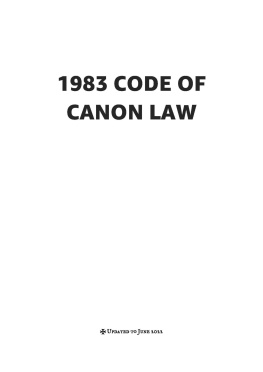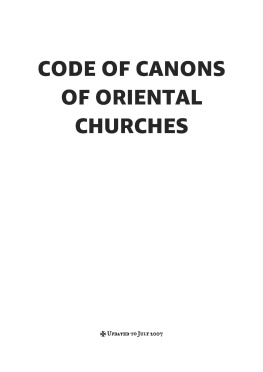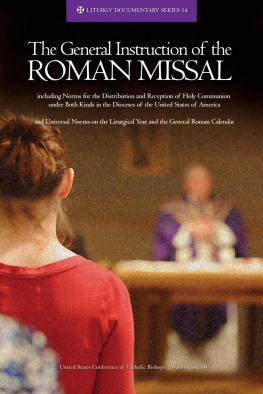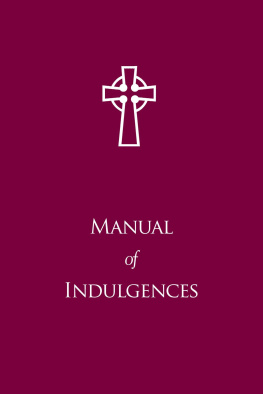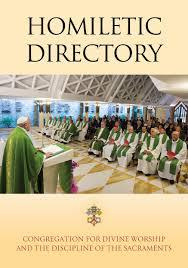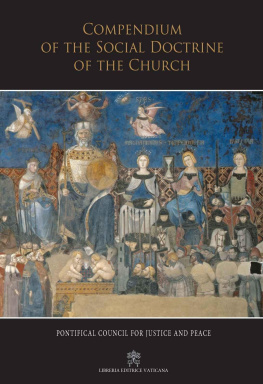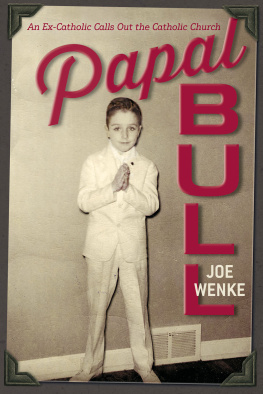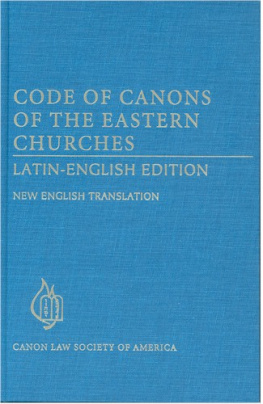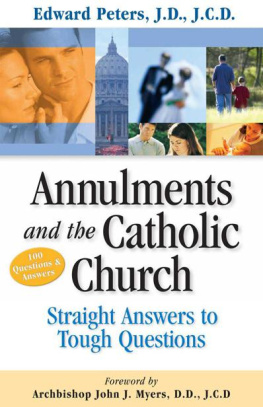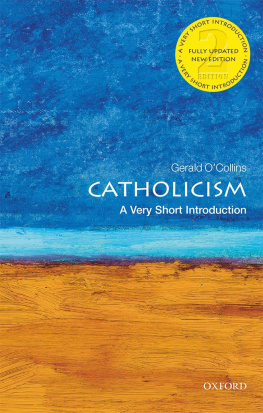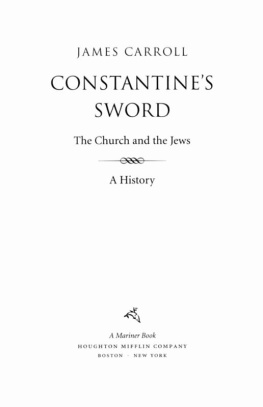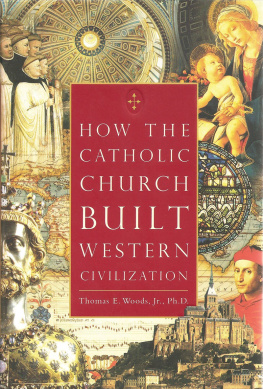The Catholic Church - Code of Canon Law - 1983
Here you can read online The Catholic Church - Code of Canon Law - 1983 full text of the book (entire story) in english for free. Download pdf and epub, get meaning, cover and reviews about this ebook. year: 2022, publisher: Vatican, genre: Computer. Description of the work, (preface) as well as reviews are available. Best literature library LitArk.com created for fans of good reading and offers a wide selection of genres:
Romance novel
Science fiction
Adventure
Detective
Science
History
Home and family
Prose
Art
Politics
Computer
Non-fiction
Religion
Business
Children
Humor
Choose a favorite category and find really read worthwhile books. Enjoy immersion in the world of imagination, feel the emotions of the characters or learn something new for yourself, make an fascinating discovery.
- Book:Code of Canon Law - 1983
- Author:
- Publisher:Vatican
- Genre:
- Year:2022
- Rating:4 / 5
- Favourites:Add to favourites
- Your mark:
- 80
- 1
- 2
- 3
- 4
- 5
Code of Canon Law - 1983: summary, description and annotation
We offer to read an annotation, description, summary or preface (depends on what the author of the book "Code of Canon Law - 1983" wrote himself). If you haven't found the necessary information about the book — write in the comments, we will try to find it.
Code of Canon Law - 1983 — read online for free the complete book (whole text) full work
Below is the text of the book, divided by pages. System saving the place of the last page read, allows you to conveniently read the book "Code of Canon Law - 1983" online for free, without having to search again every time where you left off. Put a bookmark, and you can go to the page where you finished reading at any time.
Font size:
Interval:
Bookmark:
Updated to June 2022
BOOK I. GENERAL NORMS
Can. 1 The canons of this Code regard only the Latin Church.
Can. 2 For the most part the Code does not define the rites which must be observed in celebrating liturgical actions. Therefore, liturgical laws in force until now retain their force unless one of them is contrary to the canons of the Code.
Can. 3 The canons of the Code neither abrogate nor derogate from the agreements entered into by the Apostolic See with nations or other political societies. These agreements therefore continue in force exactly as at present, notwithstanding contrary prescripts of this Code.
Can. 4 Acquired rights and privileges granted to physical or juridic persons up to this time by the Apostolic See remain intact if they are in use and have not been revoked, unless the canons of this Code expressly revoke them.
Can. 5 1. Universal or particular customs presently in force which are contrary to the prescripts of these canons and are reprobated by the canons of this Code are absolutely suppressed and are not permitted to revive in the future. Other contrary customs are also considered suppressed unless the Code expressly provides otherwise or unless they are centenary or immemorial customs which can be tolerated if, in the judgment of the ordinary, they cannot be removed due to the circumstances of places and persons.
2. Universal or particular customs beyond the law (praeter ius) which are in force until now are preserved.
Can. 6 1. When this Code takes force, the following are abrogated:
1 the Code of Canon Law promulgated in 1917;
2 other universal or particular laws contrary to the prescripts of this Code unless other provision is expressly made for particular laws;
3 any universal or particular penal laws whatsoever issued by the Apostolic See unless they are contained in this Code;
4 other universal disciplinary laws regarding matter which this Code completely reorders.
2. Insofar as they repeat former law, the canons of this Code must be assessed also in accord with canonical tradition.
Title I. Ecclesiastical Laws
Can. 7 A law is established when it is promulgated.
Can. 8 1. Universal ecclesiastical laws are promulgated by publication in the official commentary, Acta Apostolicae Sedis , unless another manner of promulgation has been prescribed in particular cases. They take force only after three months have elapsed from the date of that issue of the Acta unless they bind immediately from the very nature of the matter, or the law itself has specifically and expressly established a shorter or longer suspensive period ( vacatio).
2. Particular laws are promulgated in the manner determined by the legislator and begin to oblige a month after the day of promulgation unless the law itself establishes another time period.
Can. 9 Laws regard the future, not the past, unless they expressly provide for the past.
Can. 10 Only those laws must be considered invalidating or disqualifying which expressly establish that an act is null or that a person is unqualified.
Can. 11 Merely ecclesiastical laws bind those who have been baptized in the Catholic Church or received into it, possess the sufficient use of reason, and, unless the law expressly provides otherwise, have completed seven years of age.
Can. 12 1. Universal laws bind everywhere all those for whom they were issued.
2. All who are actually present in a certain territory, however, are exempted from universal laws which are not in force in that territory.
3. Laws established for a particular territory bind those for whom they were issued as well as those who have a domicile or quasi-domicile there and who at the same time are actually residing there, without prejudice to the prescript of can. 13.
Can. 13 1. Particular laws are not presumed to be personal but territorial unless it is otherwise evident.
2. Travelers are not bound:
1 by the particular laws of their own territory as long as they are absent from it unless either the transgression of those laws causes harm in their own territory or the laws are personal;
2 by the laws of the territory in which they are present, with the exception of those laws which provide for public order, which determine the formalities of acts, or which regard immovable goods located in the territory.
3. Transients are bound by both universal and particular laws which are in force in the place where they are present.
Can. 14 Laws, even invalidating and disqualifying ones, do not oblige when there is a doubt about the law. When there is a doubt about a fact, however, ordinaries can dispense from laws provided that, if it concerns a reserved dispensation, the authority to whom it is reserved usually grants it.
Can. 15 1. Ignorance or error about invalidating or disqualifying laws does not impede their effect unless it is expressly established otherwise.
2. Ignorance or error about a law, a penalty, a fact concerning oneself, or a notorious fact concerning another is not presumed; it is presumed about a fact concerning another which is not notorious until the contrary is proven.
Can. 16 1. The legislator authentically interprets laws as does the one to whom the same legislator has entrusted the power of authentically interpreting.
2. An authentic interpretation put forth in the form of law has the same force as the law itself and must be promulgated. If it only declares the words of the law which are certain in themselves, it is retroactive; if it restricts or extends the law, or if it explains a doubtful law, it is not retroactive.
3. An interpretation in the form of a judicial sentence or of an administrative act in a particular matter, however, does not have the force of law and only binds the persons for whom and affects the matters for which it was given.
Can. 17 Ecclesiastical laws must be understood in accord with the proper meaning of the words considered in their text and context. If the meaning remains doubtful and obscure, recourse must be made to parallel places, if there are such, to the purpose and circumstances of the law, and to the mind of the legislator.
Can. 18 Laws which establish a penalty, restrict the free exercise of rights, or contain an exception from the law are subject to strict interpretation.
Can. 19 If a custom or an express prescript of universal or particular law is lacking in a certain matter, a case, unless it is penal, must be resolved in light of laws issued in similar matters, general principles of law applied with canonical equity, the jurisprudence and practice of the Roman Curia, and the common and constant opinion of learned persons.
Can. 20 A later law abrogates, or derogates from, an earlier law if it states so expressly, is directly contrary to it, or completely reorders the entire matter of the earlier law. A universal law, however, in no way derogates from a particular or special law unless the law expressly provides otherwise.
Can. 21 In a case of doubt, the revocation of a pre-existing law is not presumed, but later laws must be related to the earlier ones and, insofar as possible, must be harmonized with them.
Can. 22 Civil laws to which the law of the Church yields are to be observed in canon law with the same effects, insofar as they are not contrary to divine law and unless canon law provides otherwise.
Title II. Custom
Can. 23 Only that custom introduced by a community of the faithful and approved by the legislator according to the norm of the following canons has the force of law.
Can. 24 1. No custom which is contrary to divine law can obtain the force of law.
2. A custom contrary to or beyond canon law (praeter ius canonicum) cannot obtain the force of law unless it is reasonable; a custom which is expressly reprobated in the law, however, is not reasonable.
Font size:
Interval:
Bookmark:
Similar books «Code of Canon Law - 1983»
Look at similar books to Code of Canon Law - 1983. We have selected literature similar in name and meaning in the hope of providing readers with more options to find new, interesting, not yet read works.
Discussion, reviews of the book Code of Canon Law - 1983 and just readers' own opinions. Leave your comments, write what you think about the work, its meaning or the main characters. Specify what exactly you liked and what you didn't like, and why you think so.

